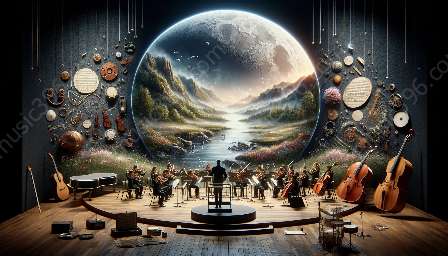Electronic music has become a defining element of contemporary music culture, encompassing a wide variety of genres and styles that have both shaped and been shaped by the history of music. This comprehensive guide explores the evolution and influence of contemporary electronic music, providing insights into its diverse genres and their impact on the modern music landscape.
The Evolution of Electronic Music
Electronic music has a rich history that spans over a century, with its roots dating back to early experimental sound manipulation and the invention of electronic instruments in the 20th century. From the pioneering work of inventors and composers such as Pierre Schaeffer and Karlheinz Stockhausen to the emergence of electronic synthesis and sampling technologies, the development of electronic music has been characterized by continuous innovation and exploration of new sonic possibilities.
This evolution culminated in the rise of electronic dance music (EDM) and the global expansion of electronic music subcultures, leading to the diverse range of contemporary genres that define the electronic music scene today. The integration of electronic elements into mainstream pop and hip-hop music has further cemented electronic music's influence on popular culture, making it an essential and ubiquitous component of modern music production and consumption.
Diverse Genres and Styles
The contemporary electronic music landscape encompasses a vast and diverse array of genres, each with its own unique characteristics, cultural origins, and sonic aesthetics. From the high-energy beats of techno and the intricate soundscapes of ambient music to the infectious grooves of house and the experimentalism of IDM (Intelligent Dance Music), electronic music offers an expansive range of sonic experiences that cater to diverse musical tastes and preferences.
Genres such as dubstep, trance, drum and bass, and dub techno have also emerged as influential and distinct branches of electronic music, each contributing to the exploration and innovation of electronic sound production and performance. The fusion of electronic elements with other musical styles, such as rock, jazz, and classical music, has further diversified the electronic music landscape, giving rise to hybrid genres and cross-genre collaborations that push the boundaries of musical creativity and expression.
In addition to genre-specific subcultures and communities, the rise of electronic music festivals and events has fostered a thriving global scene that celebrates the diversity and creativity of electronic music, providing platforms for both established and emerging artists to showcase their talent and connect with passionate audiences from around the world.
Influence on Music History
The impact of contemporary electronic music on music history is profound and far-reaching, shaping the way music is created, performed, and consumed in the 21st century. Electronic music's use of cutting-edge technologies, innovative production techniques, and boundary-pushing sonic experimentation has influenced not only the electronic music genre itself but also various other music genres and styles, leading to new forms of musical expression and production methodologies.
Furthermore, the democratization of music production and distribution facilitated by digital technologies has empowered a new generation of artists and producers to explore and engage with electronic music, contributing to an unprecedented level of diversity and creativity within the contemporary music landscape. The influence of electronic music is also evident in the crossover between electronic and traditional instruments, as well as the integration of electronic elements into live performances and studio recordings across a wide range of musical genres.
Conclusion
Contemporary electronic music and its diverse genres stand as a testament to the enduring impact and evolution of electronic music within the broader context of music history. As electronic music continues to evolve and diversify, it remains a powerful force in shaping the contemporary music landscape, providing endless possibilities for creative expression and sonic exploration.
By understanding the rich history and diverse genres of contemporary electronic music, we gain valuable insights into the dynamic interplay between technology, culture, and artistic innovation, as well as the enduring influence of electronic music on the modern music industry.









































